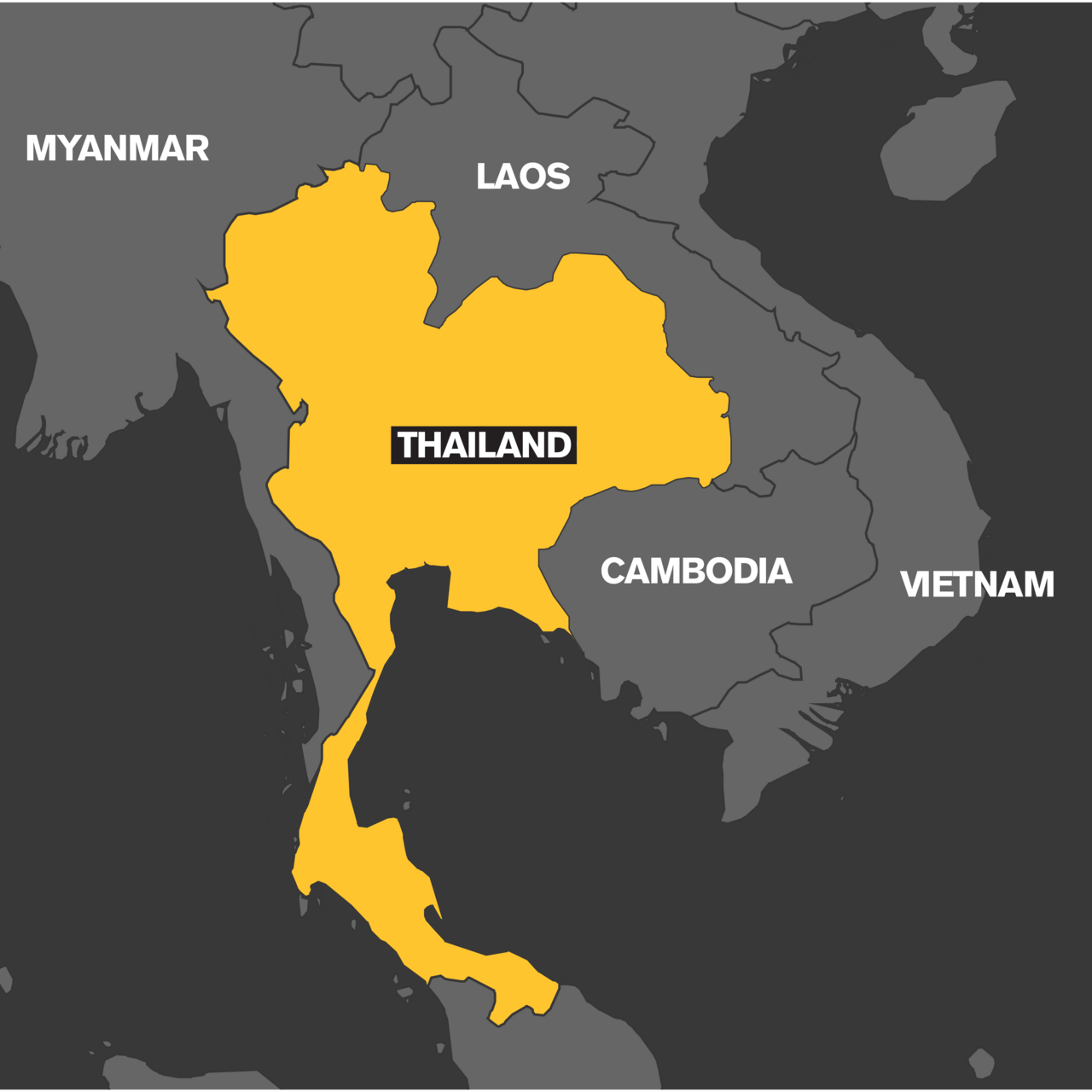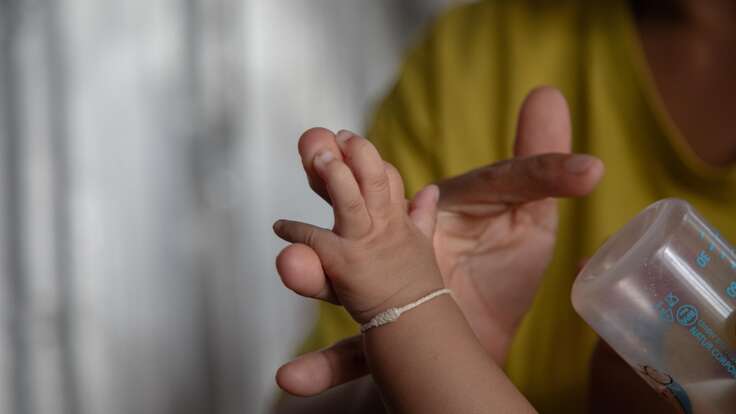Country facts
- Total population: 71,703,540
- People displaced by crisis: 96,000
- Rank in Human Development index: 66 of 191
IRC response
- Started working in Thailand: 1975
The IRC is providing food and water, healthcare and water and sanitation services, including ensuring clean drinking water and educating communities about how to reduce water borne diseases such as dengue fever and diarrhea.
Our teams also provide protection programming for children and women, legal assistance and economic wellbeing for displaced people from Myanmar residing in Thailand, as well as resettlement processing for those offered sanctuary in the United States.
People uprooted from Myanmar (also known as Burma) began crossing into Thailand in 1984 to escape violence and oppressive military rule at home. Today around 90,945 people live in camps on the Thai side of the border. The IRC began supporting displaced people in 1975, delivering much-needed health services and shelter for those who fled.
Today, some 3.7 million displaced people and migrants live in limbo in Thailand with limited access to basic rights, education and healthcare.
The majority of refugees from Myanmar living in camps in Thailand have fled ethnic conflict, human-rights abuses and economic deprivation. Although Myanmar has embraced major political and economic reforms in recent years, many refugees are reluctant to return home while political and ethnic conflicts remain unresolved and job prospects are few.
With no legal right to work in Thailand or even to leave the camps, people live in limbo - dependent on services provided by aid organisations like the IRC.
Alcoholism and domestic violence are widespread. Children are at risk of abuse, neglect and exploitation. Many girls marry early, sometimes to spouses who abuse them.
The IRC’s mission is to help people whose lives and livelihoods have been shattered by conflict and disaster to survive, recover and gain control of their future.
The IRC started working in Thailand in 1975 in response to the uptick in numbers of refugees arriving from Vietnam, Laos and Cambodia. We have provided programs and services to displaced Burmese in Thailand since 1992. Specifically, the IRC:
- provides ongoing medical care, focusing on pregnant women, babies and children, and on the prevention and treatment of malaria.
- provides health training (the first academically accredited program) for displaced people so they can deliver services within their towns and villages, such as nursery services and midwifery.
- helps landmine victims and others with special needs by providing medical care, prostheses and emotional support.
- works with adolescent girls to tackle issues such as early marriage and violence against women.
- provides legal counselling, emotional support and referral services to refugees, especially women, who are victims of crime or abuse.
- assists refugees seeking admission to the U.S. by processing asylum claims with the federal government.
- collaborates with local authorities and partners to advocate for the rights of children, migrant workers and displaced people and to ensure they have access to services.
- strengthens displaced people's employment skills and provides training so that they can access livelihood opportunities, for example.
- responds to emergencies with urgent medical treatment and supplies.
The IRC’s priorities are to keep people safe and healthy and ensure they have the power to make decisions about their lives. We aim to reach 70,000 people by the end of 2024, specifically targeting conflict-affected people.
Download the IRC's Thailand strategy action plan to learn more about our program priorities through 2024.

